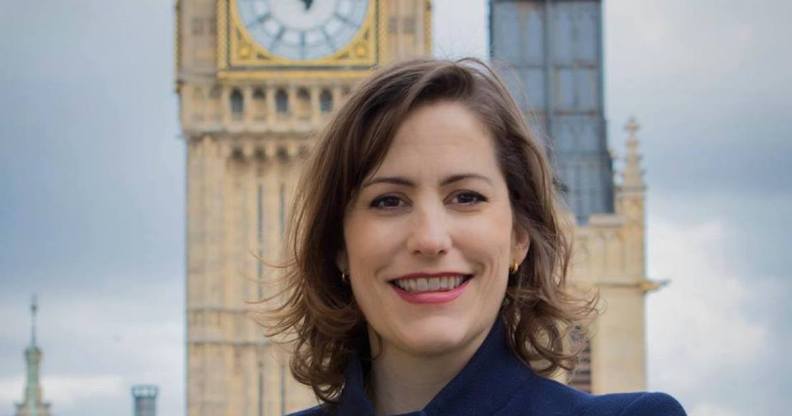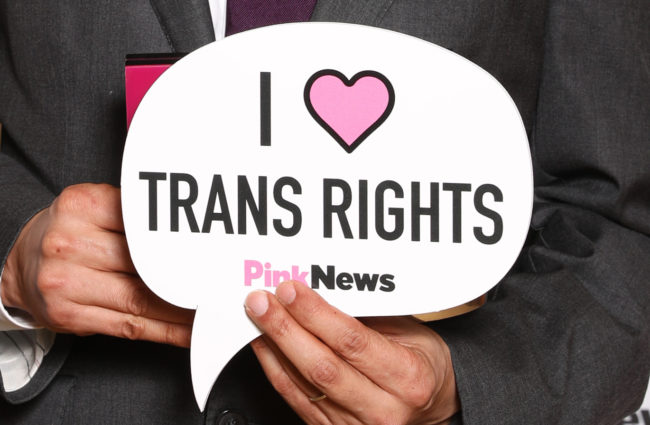Gender Recognition Act: Reforms by ‘spring next year’

The Tory Minister for Women has said that the government expects to announce its response to a recent consultation on reforms to the Gender Recognition Act (GRA) in “spring next year.”
Victoria Atkins, parliamentary under secretary of state (minister for women) at the Home Office, also said at the Westminster Hall event on Wednesday that “no decisions have been made yet as to what, if any, changes are to be made” to the Gender Recognition Act.
Atkins said the government received “more than 100,000” responses to its public consultation about the GRA.

A trans rights placard at the PinkNews Awards 2018. (Paul Grace)
Tory MP: Gender Recognition Act response in “Spring next year”
“We hope to have a government response to the consultation ready in spring next year,” said Atkins.
“As you’ll appreciate, 100,000 responses—it takes a bit of time to work through. Also, we want to make sure that we get the right response and it is in that response we will set out the next steps.”
Atkins added that there are still no formal plans for the government to introduce self-identification, a process that would more easily allow transgender people to legally change their gender, as part of the reform of the Gender Recognition Act.
“We hope to gave a government response to the consultation ready in Spring next year.”
—Conservative MP Victoria Atkins
“People shouldn’t walk away with the idea that we have made up our mind yet,” she said.
“It’s only been a couple of months since the consultation has been closed and no proposals have been put forward as to self-identification or other ways in which we can deal with this act.”
The House of Commons event, called “Proposals to allow self-identification of gender,” is believed to be the first time self-identification has been the focus of a UK parliamentary debate.

Prime Minister Theresa May at the Conservative Party Conference earlier this year. (Dan Kitwood/Getty)
It was organised by Tory MP David Davies, who opposes self-ID being introduced in the Gender Recognition Act and previously voted against equal marriage, describing it as “barking mad.”
Victoria Atkins: There will be a call for evidence for intersex and non-binary people published “shortly”
Atkins also announced there would be a call for evidence—launched by the Government Equalities Office as part of its LGBT Action Plan—regarding intersex and non-binary people, which will be published “shortly.”
She added that the reform of the GRA would uphold trans people’s current legal rights in the UK.
“There will be no loss of trans rights, trans people’s rights,” she said.
“This consultation is an open consultation to try to determine what the law is and where people’s thoughts [are] to its application in the 21st century.”
Prime Minister Theresa May has previously said she wants the “intrusive” process to legally change genders to be “de-medicalised.”
This means the government could introduce a self-identification system in the Gender Recognition Act, similar to the process used in other countries like the Republic of Ireland, Norway and Denmark.
Currently, trans people have to obtain a Gender Recognition Certificate in order to legally change gender.
This requires trans people to get a medical diagnosis of gender dysphoria and prove that they have lived in their “acquired gender” for at least two years.

